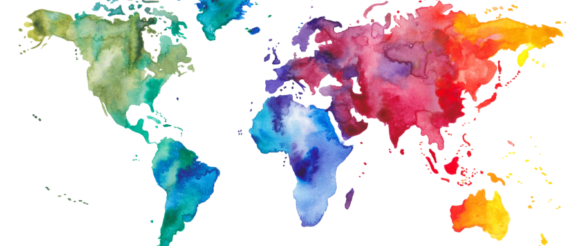Public service should look to developing nations to cope with transitions sparked by COVID-19, says Queensland’s innovation head

The innovative solutions that developing countries have used to overcome difficult situations and an entrepreneurial mindset can help Australian public servants navigate this time of disruption and transition, according to Advance Queensland’s deputy director-general of innovation Dr Sarah Pearson.
Pearson, who was formerly chief innovation officer and chief scientist at the Department of Foreign Affairs and Trade, reflected on how COVID-19 has changed the role of government and the way public services are delivered at the 2021 BiiG conference on Wednesday.
People are scared of change, Pearson noted, but change is currently inevitable. Public servants are being forced to completely overhaul the way they do their jobs, leaving them questioning their competence and their role in the COVID-era.
To alleviate this fear, governments should look to how developing countries have dealt with disruption.
“Instead of thinking the developed world’s got all the answers, and we need to go and tell developing countries, ‘this is how you do it’, actually learn some stuff from developing countries,” Pearson said.
“The liminal experience we’re having now, people in developing countries, they live through that day by day. And there’s some incredible work being done by governments overseas in terms of coping with this.”
For example, in Jakarta, the government was struggling to get people to pay their taxes, because the people didn’t understand why they needed to or how.
“So they worked with an entrepreneur who set up a business that does an app around giving you messages when your taxes are due, giving you a whole lot of education about how to do it, and systems that make it really easy,” Pearson said.
“Now, government couldn’t do that. But the entrepreneur could do that.”
the Mandarin’s free daily newsletter delivered to your inbox.
Pearson argued that governments must realise that it’s possible to find solutions during the disruption, remove the fear, give people the capability and the skills to cope with this transformative time, work with entrepreneurs, and collaborate with those who are investing in social impact entrepreneurs.
She also encouraged public servants to learn from entrepreneurs and innovators, and to take their optimistic approach on board.
“They look for opportunities. They don’t think, ‘gosh, this is a disaster, it’s all going to be terrible, I’m just going to curl up into a ball’ — although they do for some periods of time. But they also keep an eye on the vision and the opportunity. I think that’s something that we can think of as public servants,” she said.
“This is an awful time. But what are the amazing opportunities that we can build on this? What can we do with our industries? Industries have been changing and delivering PPE, they’ve been looking at their supply chains, marvellous opportunities. Let’s not forget those, let’s grasp those like true entrepreneurs and innovators … So let’s, let’s engage with them, learn from them and take this into our DNA, as we, as government, drive these futures.”
Genevieve Bell, director of the 3A Institute and distinguished professor at the Australian National University, noted that public servants must also consider how they can support other workforces that are facing major transitions, such as educators and health professionals.
“It’s one thing to teach in a classroom where your students are there, it’s something very different to teach where your students are remote, and it’s a third thing to teach them [in a hybrid environment],” she said.
“We know that means we need to invest in teacher training, we need to invest in support services, we need to invest in the infrastructure, because it’s not just a matter of taking the class and turning on a camera. We know that doesn’t work … What is the support we would need to enact to make those transformations work?”
It’s important to support these changes without accelerating inequity, Bell said. Governmental processes may also need to be reimagined to cater for this uncertain period of time. Processes that require people to go to a building, for example, may not be feasible.
“What are the [things policy makers must do] that acknowledge that for a little bit of time people’s senses of safety may be different, people’s sense of comfort may be different, people’s ability to navigate public spaces may be changed. We may see people actually moving themselves to different locations,” Bell said.
“So even as we think about what processes need to look like, there’s an interesting kind of moment of saying, it’s not just about remapping the process, but actually thinking about what are the questions we’re trying to solve with that process, and are those still the right ones?”
